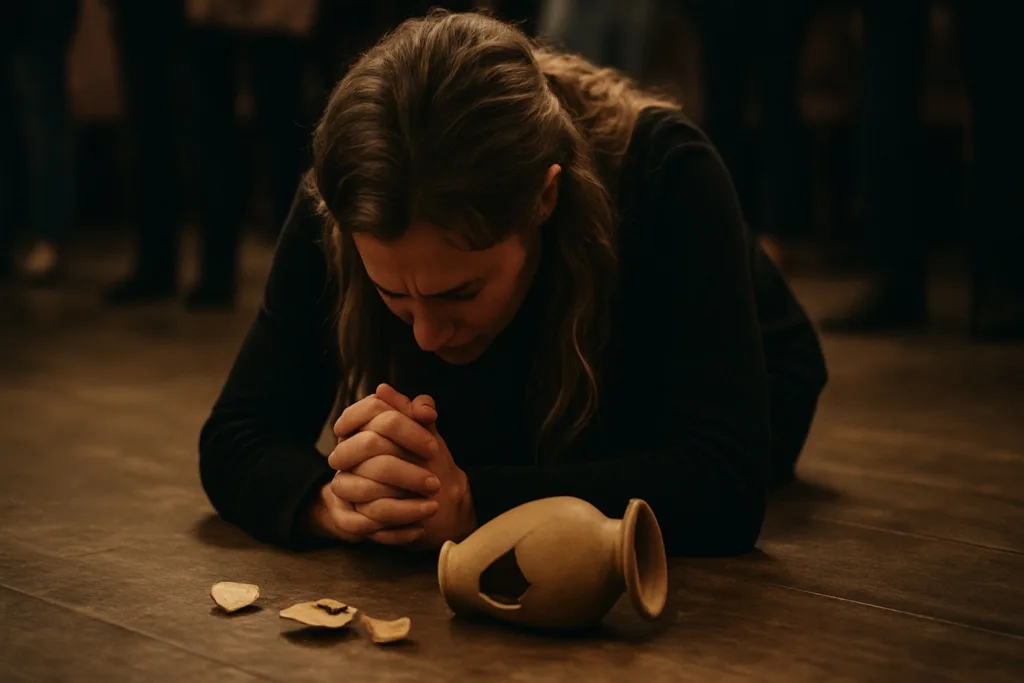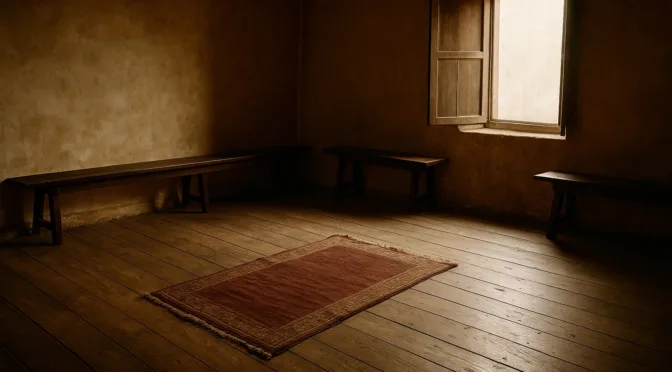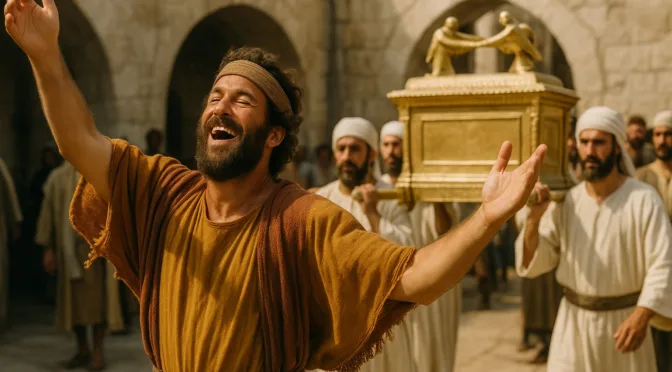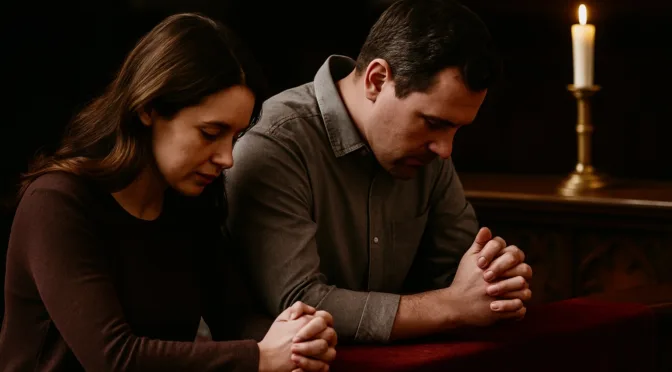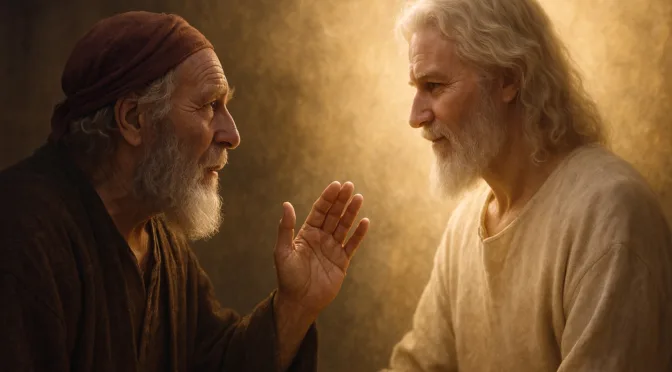Serving as the Lifeblood of the Body
Beloved, hear what the Spirit says to the Body: If serving is not flowing through you, then the heartbeat of the Kingdom is not in you. Let us examine ourselves—not to despair, but to return quickly to His side. It does not matter what we build, what we declare, or how loudly we sing—if the blood of the Lamb is in us, then the love of the Lamb must flow out of us. Serving as the pulse of the Kingdom is not a ministry—it is identity. It is not an action—it is a manifestation of union with Messiah.
“By this all people will know that you are My disciples: if you have love for one another.” — John 13:35, NASB
We cannot be in Him and remain unmoved by need. We cannot abide in the Vine and bear no fruit. The moment the pulse stops, the Body collapses. So it is with every soul that ceases to serve. God is love. And love serves. This truth is not seasonal. It is eternal. It flows from the throne of God like a river, and wherever that river flows, it gives life.
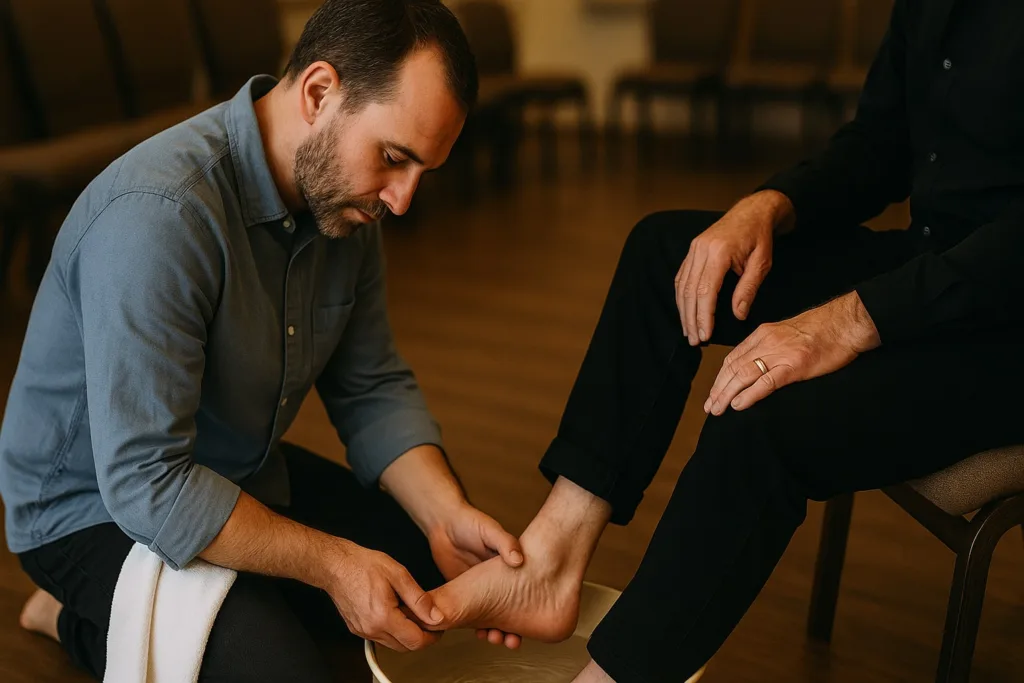
Serving in love and humility
A Servant King Rules the Kingdom
The Kingdom has a King—and He is not seated on a throne demanding honor. He is robed in humility, kneeling with a towel. Yeshua, Son of the Living God, stooped to wash feet not once but forever. And all who walk with Him will take the basin and follow. The true glory of God is revealed in this: He serves.
“If I, the Lord and the Teacher, washed your feet, you also ought to wash one another’s feet.” — John 13:14, NASB
There is no crown without a cross, and there is no greatness without service. In the Kingdom, the lowest place is the nearest place to God. We descend to ascend. We give all to gain Him. If you have truly seen His face, you will long to pour yourself out for others. You will not ask, “Should I serve?” You will cry, “How can I love Him more?”
The Pulse Does Not Stop
Serving as the pulse of the Kingdom means it cannot be occasional. You cannot schedule a heartbeat. You cannot decide when it flows. This is why true service must be born of the Spirit—not pressure, not pride, not position. Only intimacy sustains the pulse.
“The love of Christ controls us, having concluded this, that one died for all…so that those who live would no longer live for themselves.” — 2 Corinthians 5:14-15, NASB
When you walk with the Servant-King, His love compels you. It moves in you like blood, pulsing life into the Church. It nourishes the Body. It warms cold hearts. It revives what religion has dried out. It finds the feet no one else will touch. It carries burdens no one else will see. Beloved, this is not a burden—it is the joy of those who dwell in Him.
The Church Lives When It Bleeds Love
The Church does not thrive by strategy or spectacle. She lives when she bleeds. Not with empty effort, but with the precious pulse of Heaven flowing through her members. When each one gives, when each one moves with the rhythm of the Spirit, the Body becomes radiant and whole.
“From Him the whole body…causes the growth of the body for the building up of itself in love.” — Ephesians 4:16, NASB
You were not redeemed to rest in apathy—but to rest in Him, and rise in love. You were redeemed to rise and serve. He did not rescue you so you could observe—He saved you so that His life would become your own. This is not religion. This is resurrection. This is what it means to carry the pulse of the Kingdom within your chest.
We Are People of the Blood and the Basin
Do you not know? The blood that saved you is the same blood that calls you. He poured out everything—now He invites you to do the same. We are not people who admire the cross; we are people who take it up daily. We are not servants once—we are servants always.
Serving as the pulse of the Kingdom means we do not need recognition. We do not need applause. We only need Him. He is our portion. And if He stooped low, we will stoop lower still. The towel is not a lesser ministry. It is the ministry of Heaven. When we serve, we bear His likeness.
Flow through me, O pulse of grace, where mercy must be born—
Let every beat I offer serve the lost, the crushed, the torn.
If You have knelt, then so will I, until I see Your face—
And lift the low with nail-scarred hands, sustained by sacred pace.
The pulse of Heaven beats with love, and those who walk with Him cannot help but move.
Prayer
O Yeshua, Servant and King, awaken our hearts again to the holy call to serve. Forgive us when we have made worship about sound but not sacrifice. Let Your pulse be felt in us again—strong, steady, unstoppable. Make us people who wash feet in secret, who carry burdens with joy, and who serve not from duty but from love. Strip us of pride. Fill us with fire. Until Your whole Body lives and breathes and moves in the power of love. In Your holy Name, amen.
⸻





